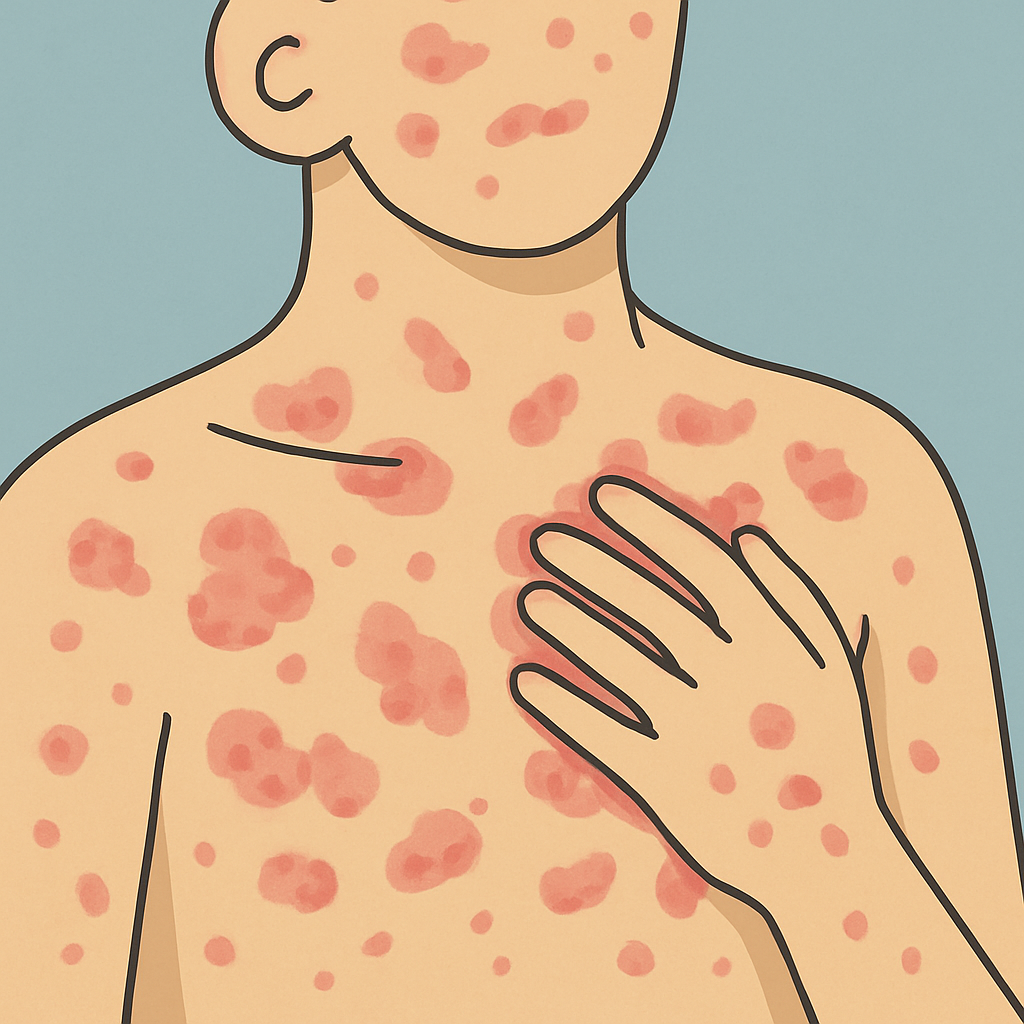Understanding Chronic Spontaneous Urticaria (CSU): Causes, Support, and Smart Tools

Discover a new level of personalized health support for chronic urticaria
• Learn more about your disease
• Be more confident in dealing with symptoms
• Access the knowledge of other patients

Struggling with recurring hives that appear without warning? If your skin flares up with itchy, red welts for weeks—or even months—without a clear cause, you may be living with Chronic Spontaneous Urticaria (CSU).
It’s more than a skin issue. CSU can affect sleep, social life, confidence, and daily routines. While it’s often hard to diagnose and even harder to manage, there are ways to feel more informed and supported along the way.
What Is Chronic Spontaneous Urticaria (CSU)?
Chronic Spontaneous Urticaria is a condition where hives (urticaria) occur without a known allergen and last for six weeks or longer1. Some people also experience angioedema—a deeper swelling under the skin.
Common symptoms of CSU include:
- Red, itchy welts or patches that move or change
- Flares that appear without warning
- Swelling (often around the eyes or lips)
- Sleep disruptions due to itching or discomfort
Because CSU isn’t triggered by a specific food or product, many people struggle to identify a cause2. This can make treatment frustrating—and progress feel slow.
Why CSU Is So Hard to Track
The unpredictable nature of CSU makes it feel overwhelming:
- Triggers vary: Some people notice flares after stress, heat, or exercise. Others don’t see any clear connection.
- The symptoms shift: Hives can appear and disappear quickly—or hang around for days.
- Diagnosis is delayed: Many patients visit multiple specialists before getting a name for what’s happening.
All of this can lead to uncertainty and anxiety. That’s why tracking patterns over time becomes one of the most effective ways to take back some control.
Insights from Real CSU Patients
Thanks to patient feedback collected through mama health—an AI-powered educational tool—some helpful patterns have emerged:
- Stress is a hidden trigger for many users, especially around deadlines or life changes.
- Cotton gloves, fragrance-free moisturizers, and cool compresses have been mentioned as useful home strategies.
- Many users feel unprepared for short doctor visits and want help organizing their symptom history.
While individual experiences vary, these recurring themes help highlight the power of shared learning.
How mama health Can Support You (Between Appointments)
mama health is a free, doctor-built educational chatbot for people managing chronic conditions like CSU. It’s not a medical device. It doesn’t offer diagnoses or treatment.
Instead, it helps you:
- Describe and track your symptoms in your own words
- Discover insights into what other CSU patients have tried
- Organize your journey into a downloadable summary for doctor visits
- Access research-based educational support at any time
It’s completely private and designed to support—not replace—medical conversations.
What Makes mama health Different?
Unlike forums or search engines, mama health focuses on personalized, evidence-informed conversations that evolve with your journey:
- You don’t have to search. It asks smart questions based on what you share.
- You learn from real-world insights submitted by other patients.
- You’re empowered to reflect, prepare, and communicate more effectively with your healthcare team.
This can make a big difference when symptoms fluctuate and traditional medical visits feel too short.
Final Thoughts
CSU can be frustrating—but understanding your patterns and sharing your experience makes a difference.
If you’re looking for a gentle and private way to reflect, learn, and prepare for your next appointment, mama health might be a helpful place to start.
You’re not alone—and there are tools that can help you feel more in control, one step at a time.
Discover a new level of personalized health support for chronic urticaria
• Learn more about your disease
• Be more confident in dealing with symptoms
• Access the knowledge of other patients

Sources
1. Zuberbier, T., et al. (2018). EAACI/GA²LEN/EDF/WAO guideline: definition, classification and diagnosis of urticaria. Allergy, 73(7), 1393–1414.
2. Kolkhir, P., et al. (2017). Autoimmune chronic spontaneous urticaria. Frontiers in Immunology, 8, 1173.






